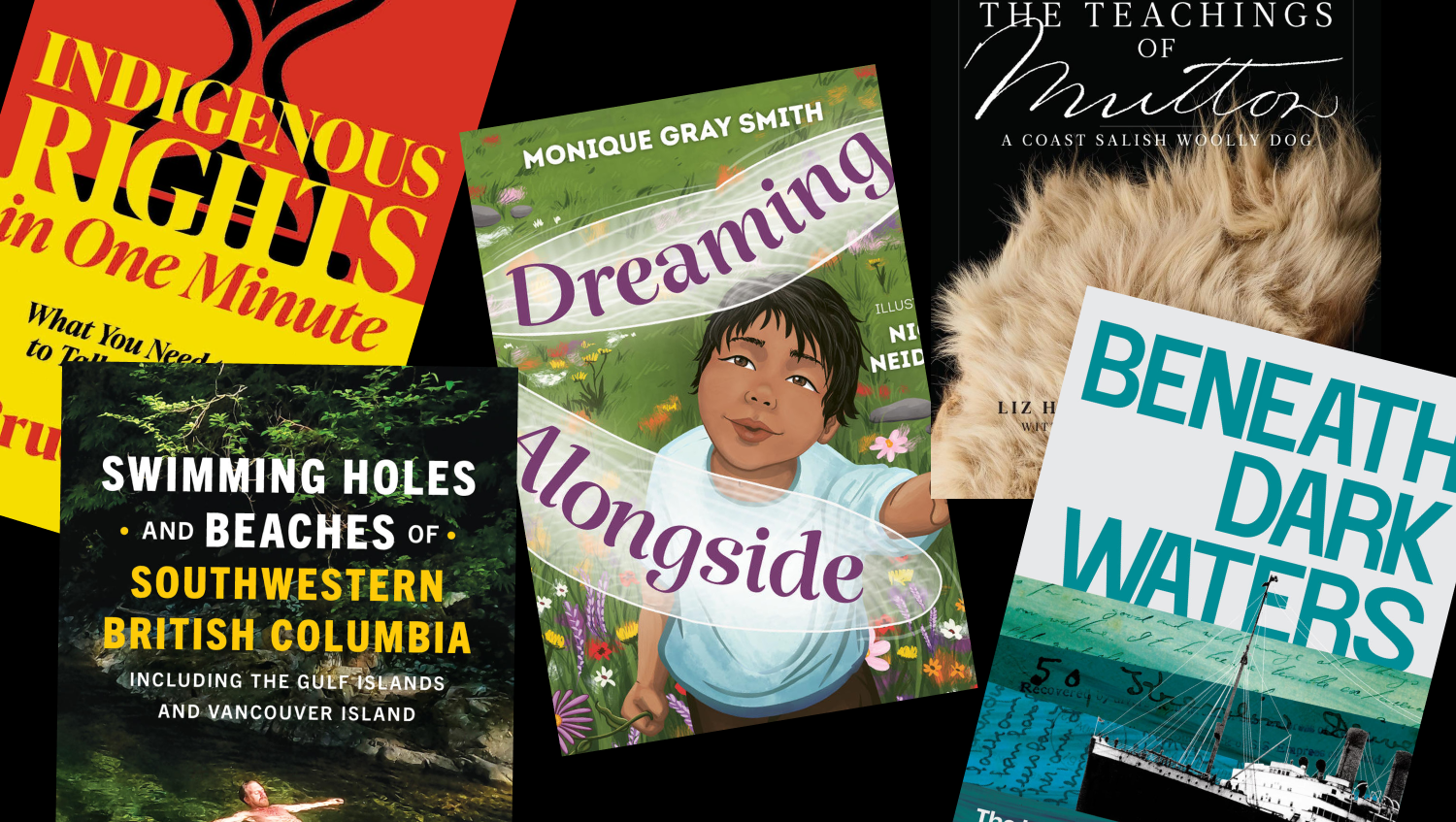On May 21st, we observe National Magazine Day, a day to honour the enduring impact of magazines on culture, journalism, and storytelling. It serves as a reminder of the rich history and continued relevance of print media in an increasingly digital world. Magazines have played a pivotal role in shaping public discourse, influencing trends, and providing in-depth reporting on a variety of topics, serving informational purposes and sparking cultural conversations.
British Columbia is home to over 280 magazines, representing a broad diversity of publications, ranging from small to large, literary to lifestyle, leisure to arts and culture, news, business, and special interest magazines. Industry professionals in all magazine-related occupations are recognized for their excellence in content, design and production as well as providing thought-provoking commentary, engaging narrative, spectacular images and informed analysis of current issues that reflect the lifestyle, spirit and aesthetic of B.C.
To celebrate our province’s vibrant literary landscape, BC Creates is spotlighting Geist magazine, who was recently nominated at the National Magazine Awards in the One-of-a-Kind Storytelling category for Long Lost Lido, written by Onjana Yawnghwe, with contribution from Dayna Mahannah, editor-in-chief. BC Creates interviewed Dayna to get an insight into the world of Geist.
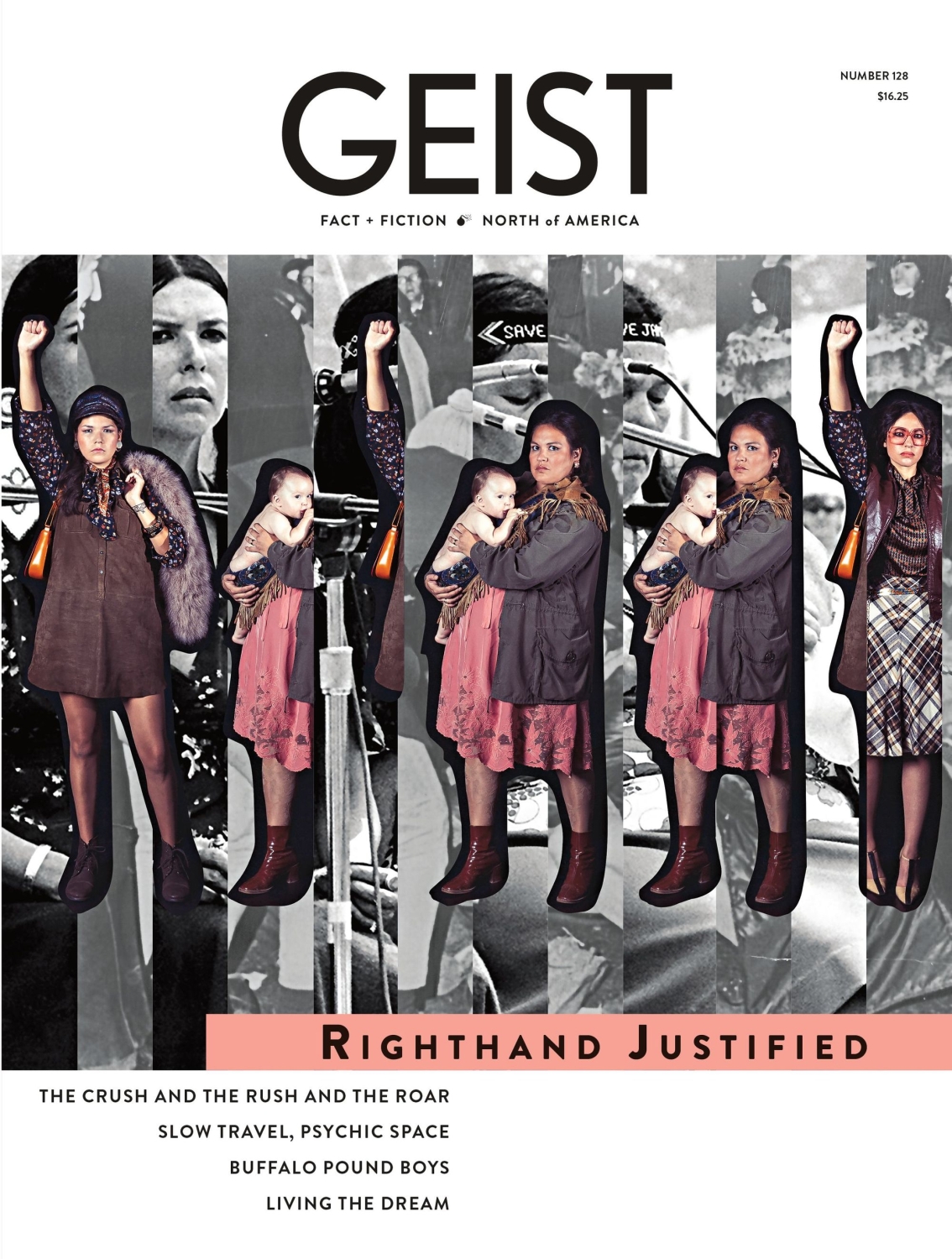
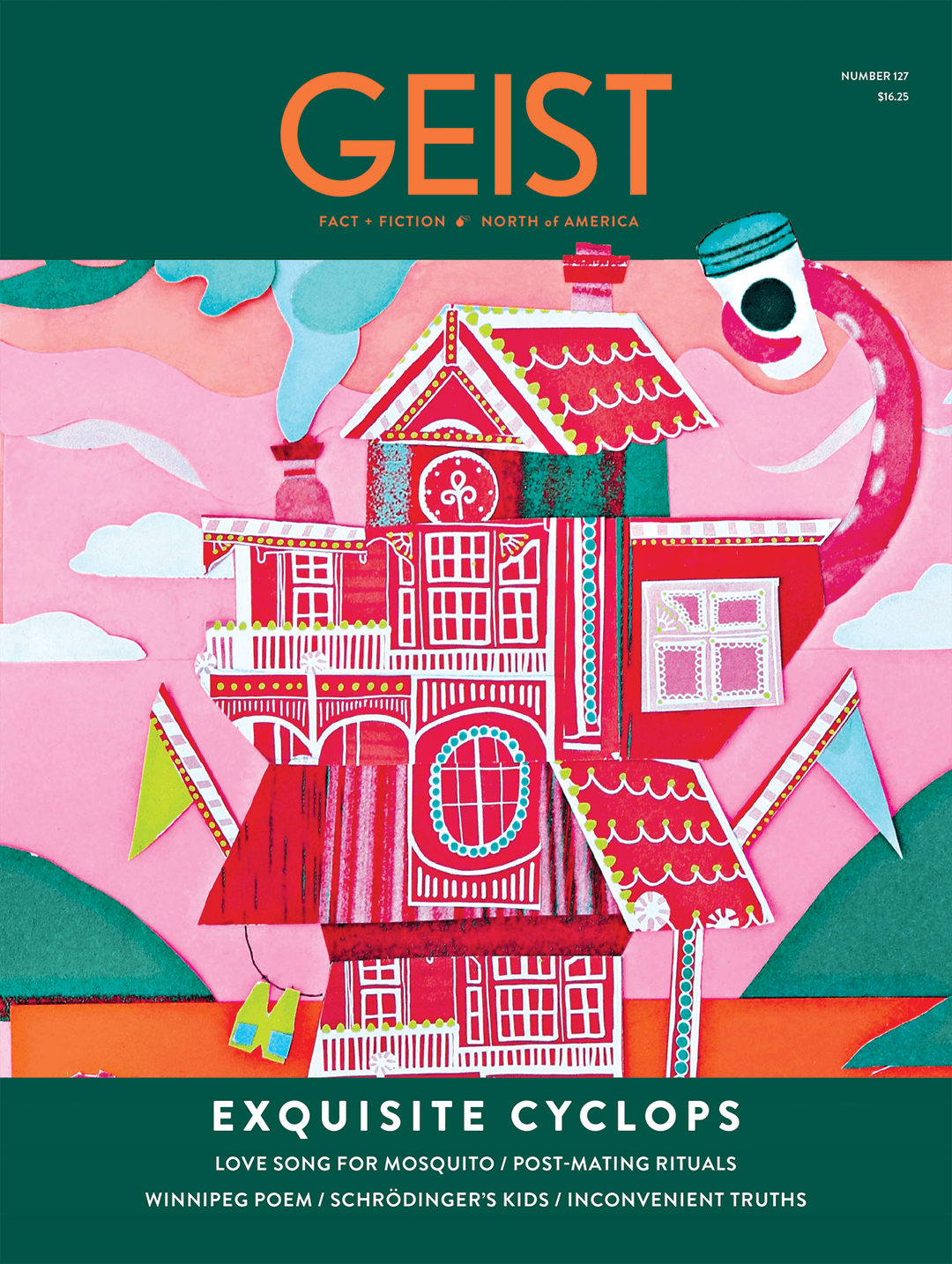
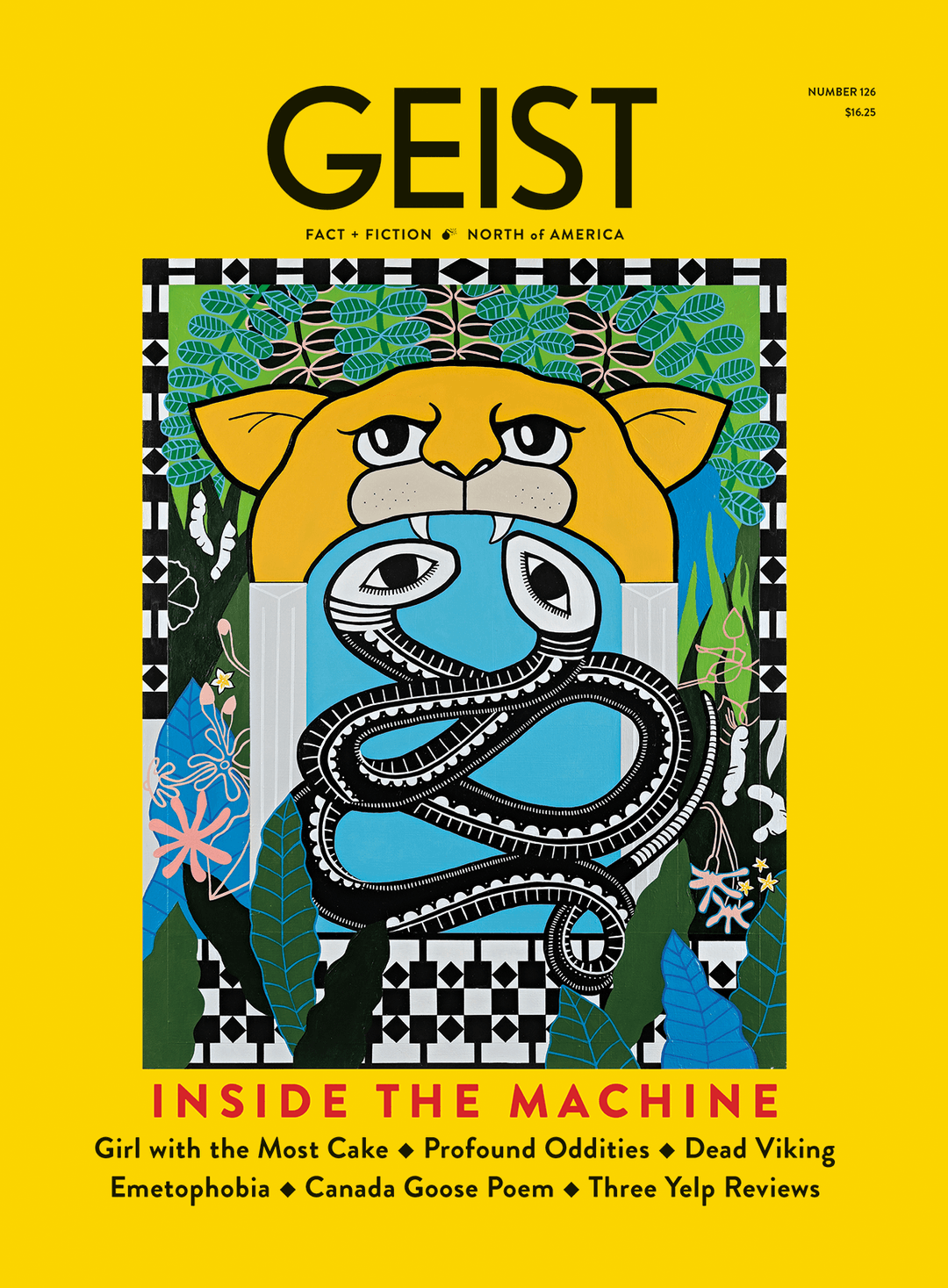
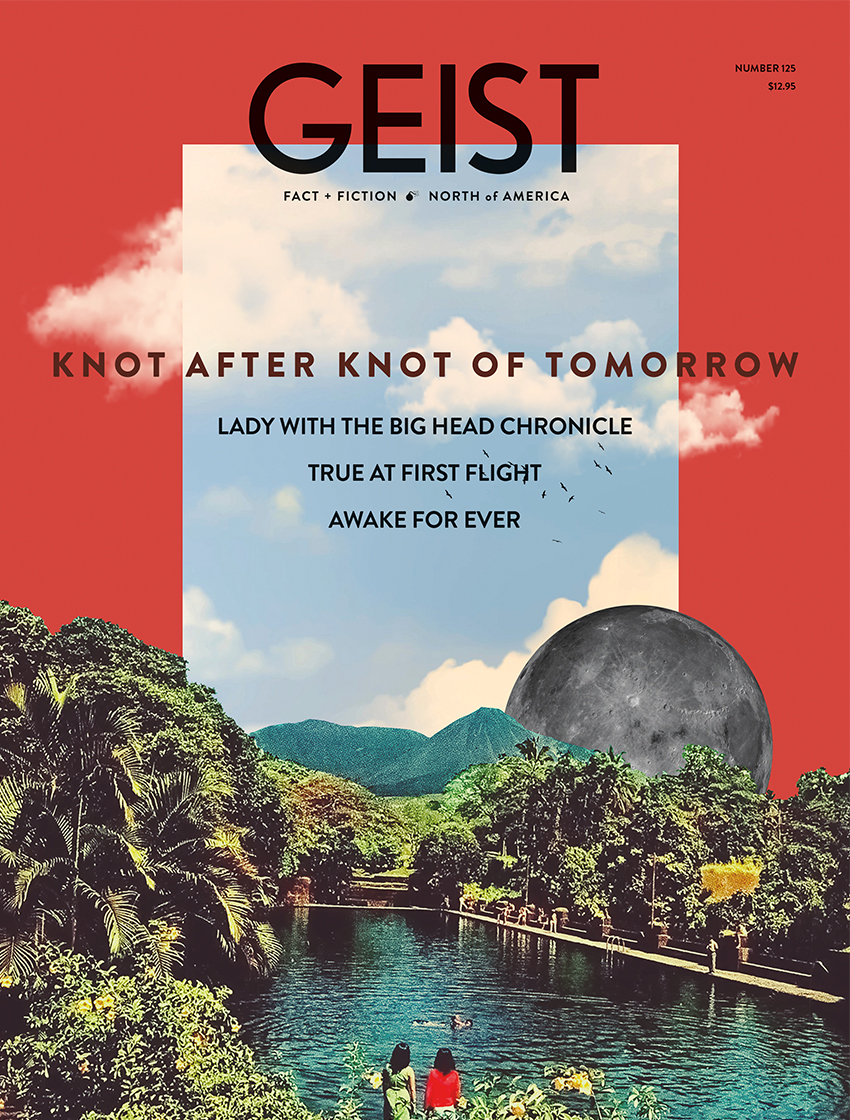
“There is something inherently grounded about the writing and art in Geist. Like it’s almost tactile.” – Dayna Mahannah
About Geist Magazine
Geist began as a 40-page newsprint publication in the living room of founders Stephen Osborne and Mary Schendlinger in 1990. It was established to be articulate, humorous and identifiably Canadian. As a literary magazine of ideas and culture, Geist’s artistic mission is primarily focused on the art and politics of narrative, with its cultural focus being “North of America.” Geist publishes the best that they can find of narrative essays (fiction and non-fiction), poetry, reviews, photography, drawings, comix, puzzles and little-known facts—with a special interest in fresh interactions between text and image. Their mandate is to find and encourage a wide audience for new and established Canadian writers and artists of merit.
Over the course of their nearly 30-year history, Geist published the work of more than 1,500 emerging and established writers and artists from across the country, many of whom were published for the first time in the pages of Geist.
With readers spanning from Newfoundland to Vancouver Island to Nunavut, Geist prints and distributes 6,000 copies three times a year to the largest readership ever acquired by a literary magazine in Canada (around 52,000 readers a year).
Interview with Dayna Mahannah, editor-in-chief
What was your first encounter with Geist, and what drew you to it?
I believe my first interaction with Geist happened, ironically, online, when looking for lit mags to submit my writing. I got hooked on the (no longer active) sections called “Advice for the Lit-Lorn” and “The Writer’s Toolbox.” It was the humour that did it for me. That humour and irreverence defines the magazine’s tone, which kept me reading. Geist being a print magazine made me love it more.
How do you define Geist’s identity within the Canadian literary and cultural landscape?
Geist is one voice amongst a litany of excellent literary company in Canada—that context is what gives Geist any shape at all. Our irreverent tone is recognizable. Our content seeks to reflect the ever-shifting oddities and eclecticism of the country we live in from a cultural slant. While we primarily publish non-fiction, in Geist you will find poetry, fiction, comics, and art of all kinds. There is something inherently grounded about the writing and art in Geist. Like it’s almost tactile.
What kind of submissions or contributions are you most excited to receive?
Excellent non-fiction and writing that surprises through form. I love reading about people with interesting jobs or hobbies, writing with a strong sense of place or setting, and anything to do with animals. And comics!
How do you approach curating the balance between fiction, nonfiction, poetry, and visual content in each issue? Do certain genres tend to anchor an issue?
Geist publishes non-fiction primarily, both longer essays (up to 5000 words) as features and shorter pieces (under 2000 words) for our Notes and Dispatches section. Because of this, and because we receive fewer non-fiction submissions, I tend to curate an issue around the non-fiction pieces that are strongest and that work together in some way. Geist does not do themed issues, but themes tend to emerge during the curation process. Sometimes pieces will have a clear connection, while others connect tangentially. Connections work if they evolve or complicate that which they have in common, or spark an entirely new idea or thought altogether.
What makes a piece of fiction or poetry feel like a “Geist story”?
A voice that is distinct, yet down to earth, is Geist-y. There is concreteness to it—tangible details, sharp settings. Often, a Geist poem or story is trying to figure something out through two disparate things, whether that be a character and setting that seem at odds, or two incongruent images. Or a realization emerging from circumstances that should have led elsewhere.
What excites you about the intersection of print and digital?
In relation to Geist, I consider digital to be complementary to the print magazine—it offers more accessibility. It can be convenient, too, but convenience is not king. A print issue is curated with intent, like a record album, by the editorial team and the designer. Also, you can read it in the park!
What do you hope Geist readers walk away with after finishing an issue?
Excitement about even one piece they read, and the thrill of having discovered a new writer to fawn over. I would like readers to, over the course of an issue, be moved, laugh, and feel compelled to share it with a friend.
What advice would you give to emerging writers or editors hoping to work with literary magazines?
In equal measure: trust your instincts—cliché, but seriously—and ask for help when you need it. You’ll have more fun, plus it will save you (and others) a lot of frustration and time. Reach out to others with more experience than you and ask them what they know. Also, read literary magazines! Subscribe. Submit. Repeat.
Learn more about Geist on their website and subscribe to receive their next issue. Celebrate local magazines and share a favourite BC-published magazine using the hashtags #SubscribeBC #BCReadsMagazines.

